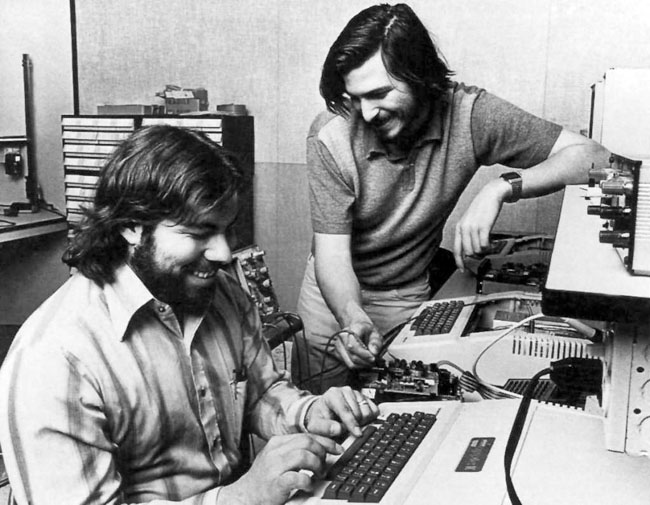This article is more than 1 year old
The healing hands of guru Dabbs
I command you IT devil... get out!
Something for the Weekend, Sir? A colleague strides purposefully across the open-plan office to the production desk. She has the wrinkled brow and wild eyes of someone who is simultaneously baffled and angry. She’s on deadline but her computer is “doing stupid things” and she doesn’t understand what or why or how to stop it.

"Oh shit, it's worse than I thought. I'm going to have to speak to Dabbsy."
Source: Twentieth Century Fox
Then... her expression betrays rising panic of a different sort as she realises that her favourite User's Little Helper is not at his desk, nor is her second favourite, nor indeed the extremely busy woman who’s actually in charge of the systems but most staff are too scared to approach. There is now anxious terror in the user’s eyes as she realises that the only person left to hear her plea for assistance is me. Her heart sinks. She knows she is done for.
Allow me to explain. First, I am sitting next to IT staff because this is the only desk that’s free. Hot-desking, doncha luvvit? However, the brain has a natural tendency to identify groups by proximity and people foolishly assume that, since I am located adjacent to clever people, I must be clever too. “Oh, isn’t Ranjit around at the moment? Could you be clever for him until he gets back?”
As Falkland Islanders say to Argentinian politicians, proximity alone should not imply ownership. I tell this to colleagues but they won’t listen. Anyone who has the misfortune to sit next to a photocopier knows what I’m taking about: everyone else assumes you’re happy to explain how to set the collation feature, know what to do about clearing feeder jams and don’t mind being asked “if there’s any more paper” every five fucking minutes.
Second, I almost certainly do not know how to solve any user’s computer problem. Yet I do exactly that every day.
Allow me to explain. Last week I may have given the misleading impression in this column that I could fix home computers. Judging from the number of readers who helpfully suggested the kind of hourly rate I should charge my neighbours for delivering such a service, it seems that some of you assume I have IT support skills approaching the half-competent.
I have nothing of the kind. I am an IT journalist and trainer, and dare I say it, a specialist in certain technical production fields, but this does not make me IT Yoda. I don't even have CompTIA A+. Just because my mum used to introduce me to random passengers on public transport with the line "This is Alistair, he's a computer expert" (while trying to wipe some dirt off my face with her hanky or tidy up what remains of my hair) does not, as Picard would quip, make it so.
Now hang on, you say. Surely someone who earns a living from brazenly criticising computer kit should be a computer expert. Perhaps you also expect a football journalist to be on the reserve bench for Manchester United and a racing driver to be a qualified mechanic. No doubt you also think the surgeon who is cutting out your cyst should be dying of cancer himself and that paediatricians should be children.
The one thing I do have in my favour is fairy dust: I have the innate ability to correct computer problems, especially software issues, by magic.
Allow me to explain. Have you read in the more fantastical papers about individuals who are incompatible with modern electronics? You know, when they go near a computer, TV set or even a washing machine, the device starts acting up? Well, I’m the opposite: when I go near a computer that a user says not working properly, it mysteriously seems to sort itself out without me doing anything.

"It's easy man, I just touch it here and it works. Cool, huh?"
This, you’d think, would make me popular with colleagues beating a path to whatever hot-desk I’ve been assigned in order to plead their case for me to lay on my healing hands.
Unfortunately for them, I am an unsympathetic guru. This is due to the tedious inevitability of the process. At their request, I trudge over to the user's desk and hover nearby to allow the midichlorians to do their thing. I refuse to sit down, pick up the mouse or even touch the keyboard. Rather, I say: "Show me what you were doing" and before I can count to ten, the user blurts out: "Oh it's working now!"
Also unfortunately for them, I have deliberately developed an air of cynicism that I originally intended to make me appear somewhat louche and caddish but actually comes across as irritable hostility combined with the unspoken threat of sudden violence. Rolling my eyes at colleagues' requests for assistance doesn't improve my public image, I find. Neither does counting to ten aloud at their desks.
The result is that I enjoy an enviable measure of civility in the office. IT staff who do know what they are doing get short shrift from users, often being called over by having their names barked out from across the room, while I on the other hand am approached timidly in person with a pleading "Dabbseeeee? Can you help me pleeeeeease?" accompanied by a string of apologies in the hope of pre-empting a caustic remark.
Ah yes, I must do something about the sarcastic one-liners.
"I assume you have been saving regularly."
"These files you didn't back up, I take it they weren't important to you."
"This annoying error message you say keeps appearing, have you read it?"
"I'll just stand here so it won't happen again."
It's like I'm an IT support James Bond but without the shags and fine tailoring.
Coincidentally, I have no friends at work and even people I know avoid catching my eye in the lift for fear of initiating a conversation. I can't understand why this should be. After all, I am very helpful. ®
 Alistair Dabbs is a freelance technology tart, juggling IT journalism, editorial training and digital publishing. He promises that normal service will be resumed next week when he shall return to the original purpose of this column. Expect some proper hardware shenanigans.
Alistair Dabbs is a freelance technology tart, juggling IT journalism, editorial training and digital publishing. He promises that normal service will be resumed next week when he shall return to the original purpose of this column. Expect some proper hardware shenanigans.
